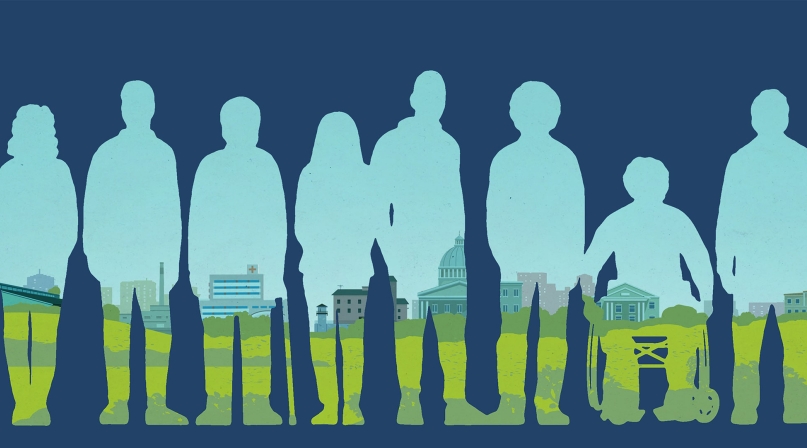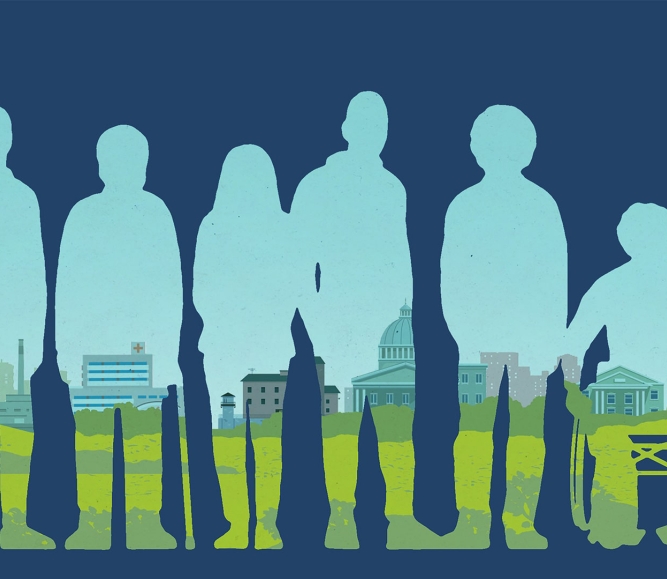County-Led Decarceration Through Expanding Behavioral Health Care

Key Takeaways
Counties across the country are working to reduce the number of people in jails through addressing behavioral health resource gaps.
- Improving access to mental health services enables counties to implement non-carceral alternatives.
- A study funded by the National Institute on Mental Health identified factors that predict jail population size including county-level health care services availability and accessibility, demographics, socioeconomic status and criminal legal characteristics. The study observed that greater access to mental health services was associated with significantly lower incarceration rates.
Access and availability of mental health services is crucial in providing a sufficient diversion path for individuals.
- The same study reported that an increased police presence in a community was associated with a higher rate of incarceration. Moreover, while controlling for county size, violent crime rate did not predict incarceration levels.
- Why it matters: This analysis suggests that the traditional crime control model will not be the solution to overincarceration; rather, a focus on availability and accessibility of mental health service may provide an alternative option and may lead to lower utilization of county jail beds.
Here another header
- The same study reported that an increased police presence in a community was associated with a higher rate of incarceration. Moreover, while controlling for county size, violent crime rate did not predict incarceration levels
- Why it matters: This analysis suggests that the traditional crime control model will not be the solution to overincarceration; rather, a focus on availability and accessibility of mental health service may provide an alternative option and may lead to lower utilization of county jail beds.
NACo’s Stepping Up initiative is providing support.
- Started in 2015, Stepping Up provides counties with resources and tools to bolster cross-system collaboration and implement data-driven practices. This work aims to reduce the prevalence of individuals with serious mental illness in local criminal legal systems and increase access to care for those with serious mental illness.
- See it in action: Stepping Up counties have seen success since becoming a part of the initiative. For example, Fairfax County operates the Merrifield Crisis Response Center. The Center offers 24-hour emergency services, a mobile crisis team, along with entry, referral and assessment services. Since 2016, over 2,800 people with mental illness have been diverted from potential arrest. For more about the work of Fairfax County to address mental health in jails, click here.
Tagged In:
Featured Initiative
The Stepping Up Initiative
The Stepping Up Initiative is a data-driven framework that aims to reduce the overincarceration of people with mental illnesses in jails through training, resources, and support that are tailored to local needs.







